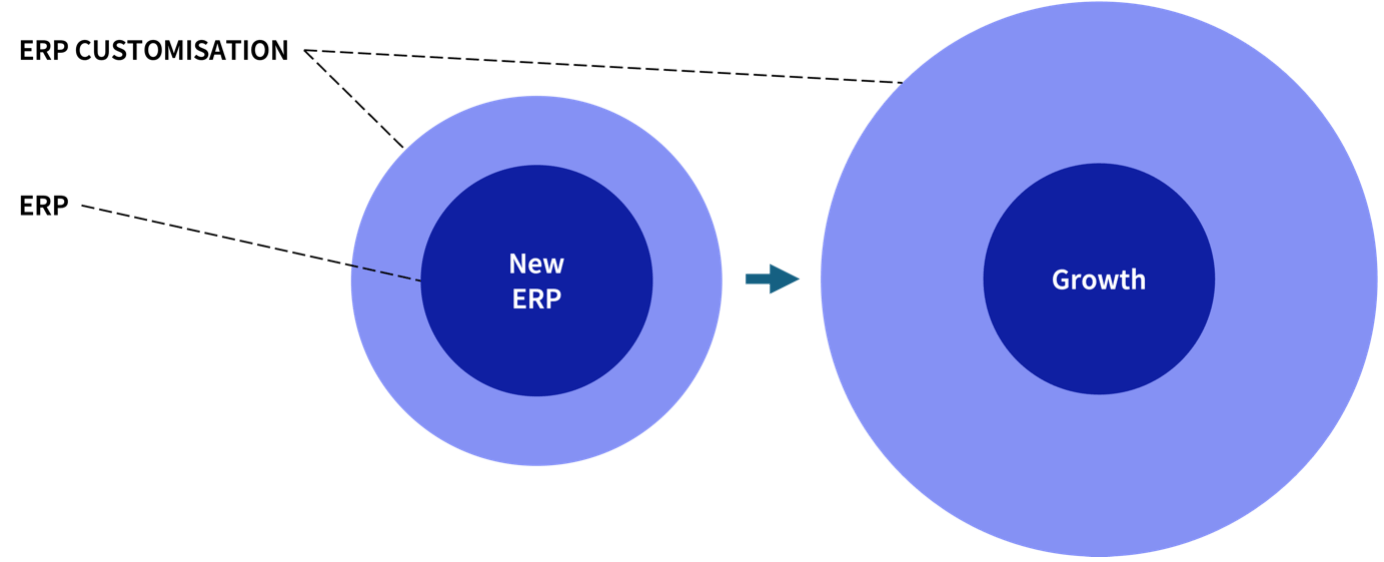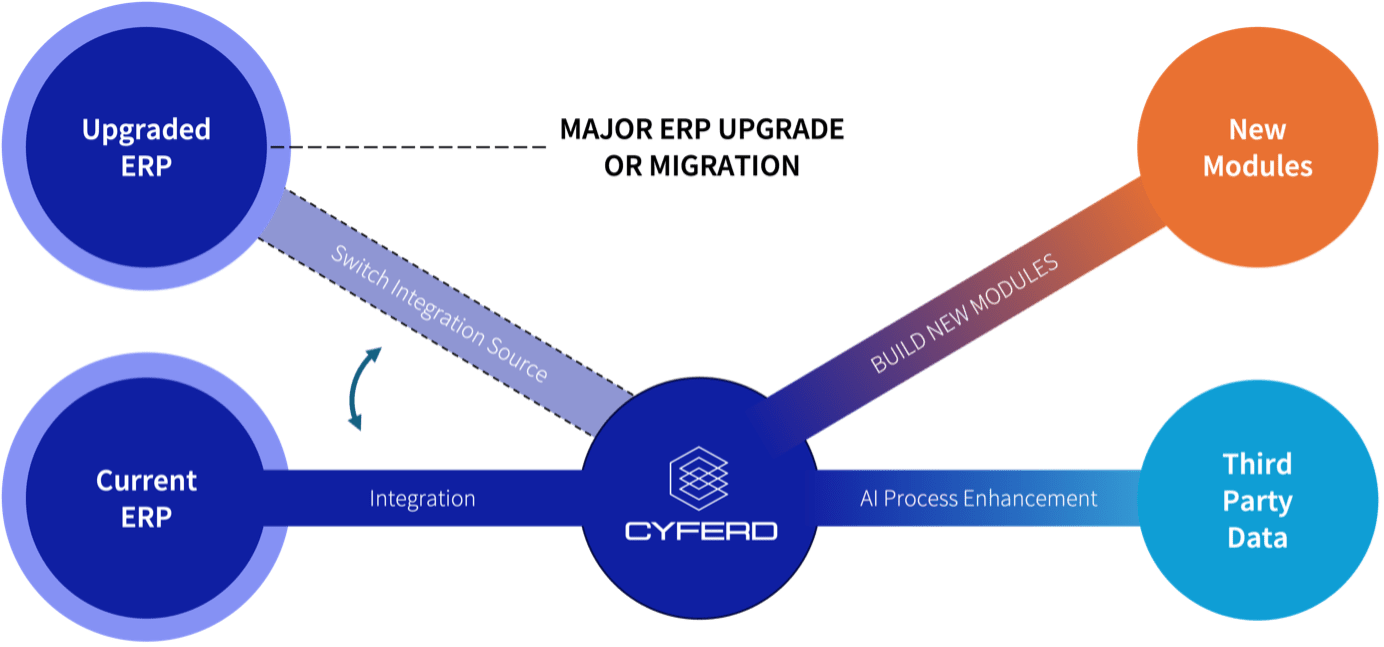The ERPs of Past, Present and Future

David Thorpe
Director of Sales Engineering
I recently attended the UK Oracle User Group event in collaboration with our partners at Differentia Consulting, and it got me thinking about the trajectory that the ERP marketplace has been on. As a technology type that has been around for decades, in various guises with multiple widely-known market leaders, like many others is undergoing a huge transformation, largely thanks to AI-powered automation.
ERP of the Past:
A quick history lesson: ERP’s roots trace back to the 1960s, where Material Requitements Planning (MRP) began to be developed and implemented. These systems focused on inventory management and production scheduling – largely in the manufacturing industry.
As MRP systems developed, they evolved further functionality into broader areas of manufacturing process, such as scheduling and production control, moving through the 70s and 80s this began to bring together finance, production, inventory into a single platform.
This then gave rise to the ERP system as we largely know it, encompassing other business functions such as human resources, supply chain management and customer relationship management. ERPs became more scalable, and through the 2000s these became modular – with customers implementing only the relevant components for their business.
ERP of the Present:
Along came cloud computing. Modularised ERP approaches took web-based technologies and truly revolutionised the marketplace. Software-as-a-Service (SaaS) model approaches taken by the likes of Oracle, Microsoft and SAP moved these products to the cloud.
Businesses began to benefit further from lower upfront costs, easier scalability and automated updates that these cloud platforms delivered, making integrations with emerging technology and pre-existing non-ERP datasets easier.
Bigger volumes of more easily accessible data, in finer granularity than had ever been seen before now means that organisations can deploy analytical techniques, machine learning, artificial intelligence to increasingly real-time data, driving decision making at levels

The Customisation Trap:
What started as a vanilla ERP implementation many years ago has become so complex with so many moving parts – many of which there is no manual; no support – we’re almost too afraid to touch it. Many current ERP deployments are heavily engrained with module customisations, the work of consultants, specialists with knowledge and therefore introducing high levels of key person dependency.
Often these customisations balloon, and when the time comes to upgrade, migrate and modernise legacy ERP implementations to the modern SaaS stack offerings of the major players, as support is being withdrawn and putting users at risk of non-compliance, it triggers costly challenges. This is particularly important, as organisations seek to benefit from the rise of the emerging technologies mentioned earlier, such as AI.
We have seen this play out recently as Birmingham City Council (interestingly, where the OUG conference was held) are expected to spend £216 million in migration costs. [1]

ERP of the Future:
AI-Powered Automation
AI will become further embedded into ERP end-user processes, supporting enhanced decision making, repetitive task automation and sitting alongside the user experience in the form of bots and agents, streamlining workflows.
Continued Cloud
Cloud-based ERPs are no longer optional for most organisations, as they seek to benefit from the scalability, flexibility and security they bring. A market expected to double in size, by 2028, reaching $130bn.
Mobile ERP
In an increasingly mobile and decentralised world, ERP providers are making their applications prove more robust, as they are designed foremost for the mobile-led workforce.
How to Avoid Being Stuck
One such solution to avoiding the customisation trap is to keep your ERP as ‘vanilla’ as possible, leveraging the standard functionality of your ERP’s built-in features. By embracing no-code and low-code platforms layered on top of your core system reduces the reliance on heavy coding and therefore upgrade challenges.
Ever considered questions such as:
“I need to deploy a basic CRM without having to license the full cost of an ERP module”
“I would like to swap out my ERP HR application module for something best-in-class”
“I want to leverage AI models and third-party data into my process flows”

Conclusion:
ERPs are hugely valuable, but customisations can be costly, especially when not managed correctly – hampering your ability for timely upgrades and introducing risk into your business.
Cyferd can answer each of these challenges, creating functionality to augment your existing ERP, support with upgrades through seamless integration into your ERP and third-party datasets, all while embedding Neural GenesisTM AI for enhanced decision making and process improvement.
[1] https://www.theregister.com/2024/08/20/birmingham_oracle_cost/
Find out more About Cyferd
New York
Americas Tower
1177 6th Avenue
5th Floor
New York
NY 10036
London
2nd Floor,
Berkeley Square House,
Berkeley Square,
London W1J 6BD
